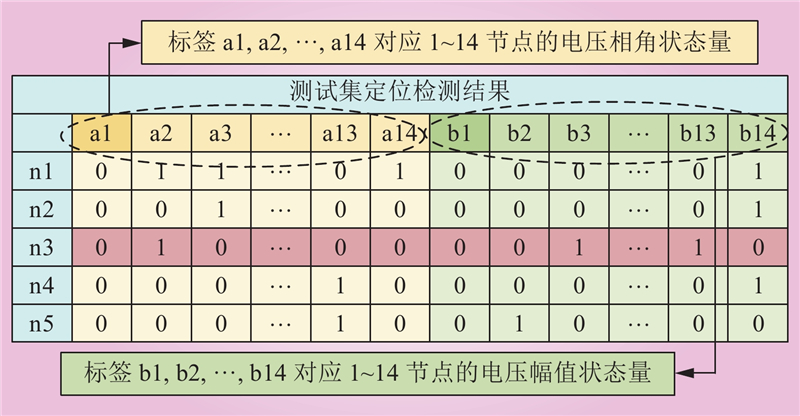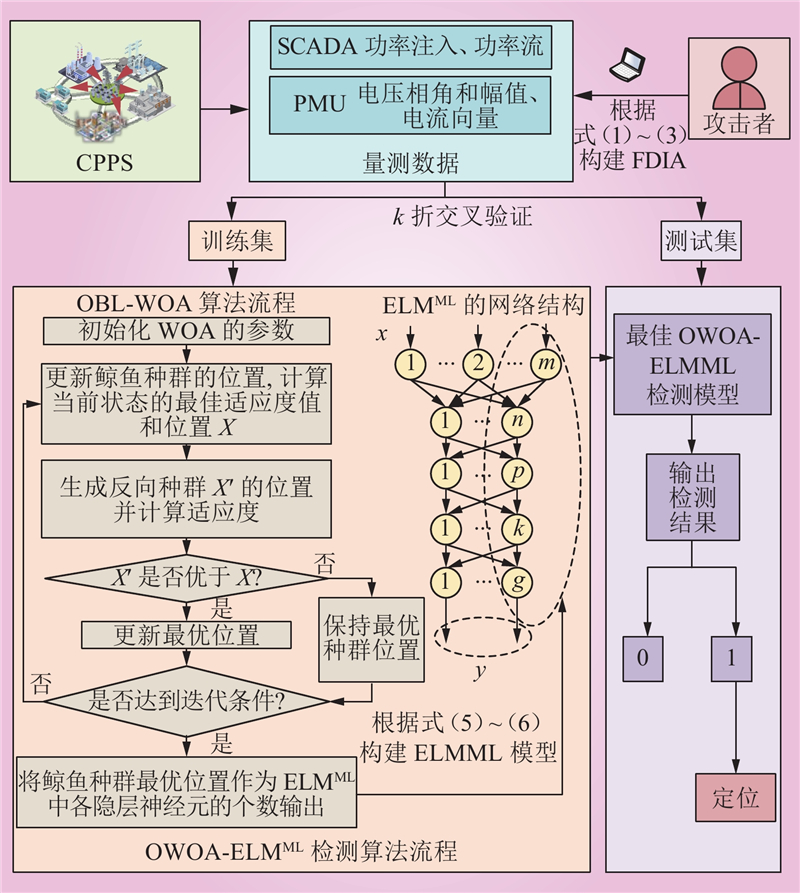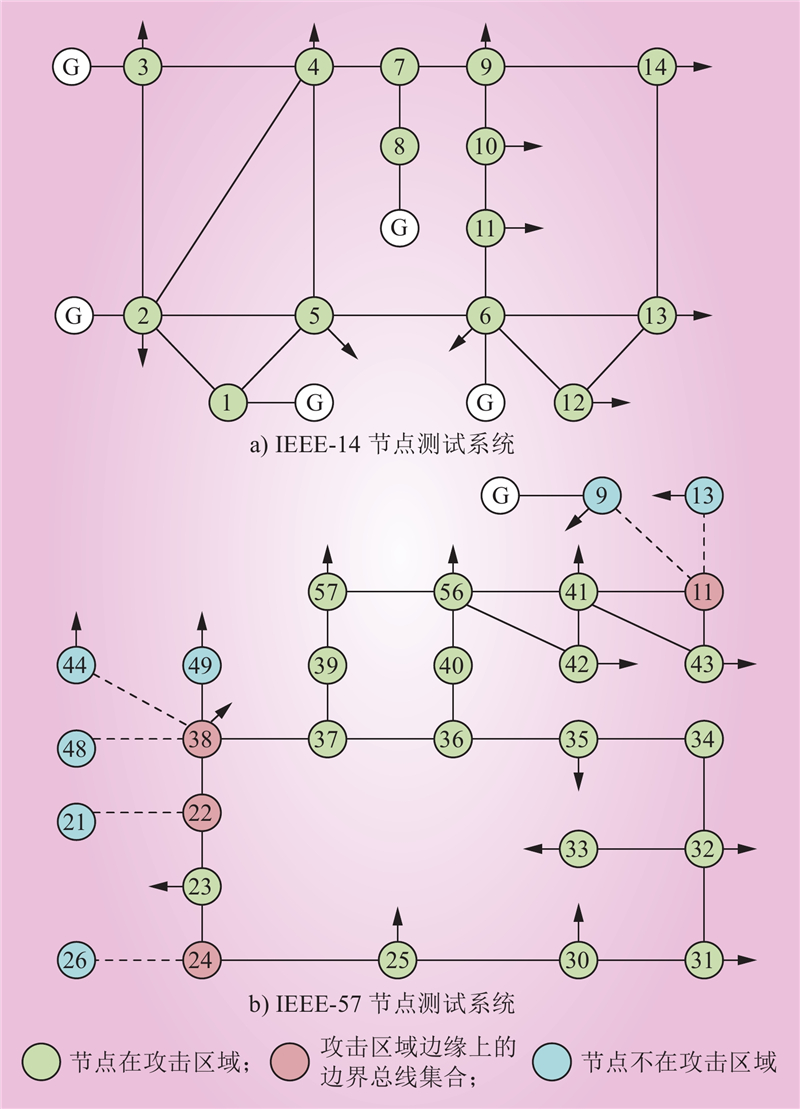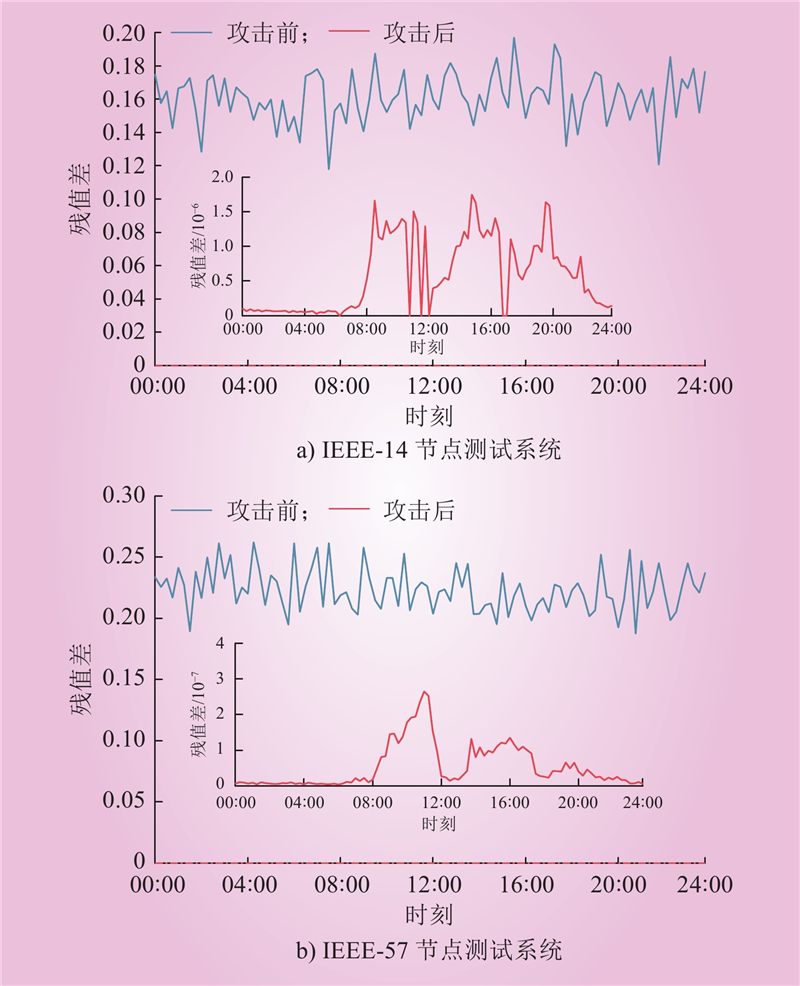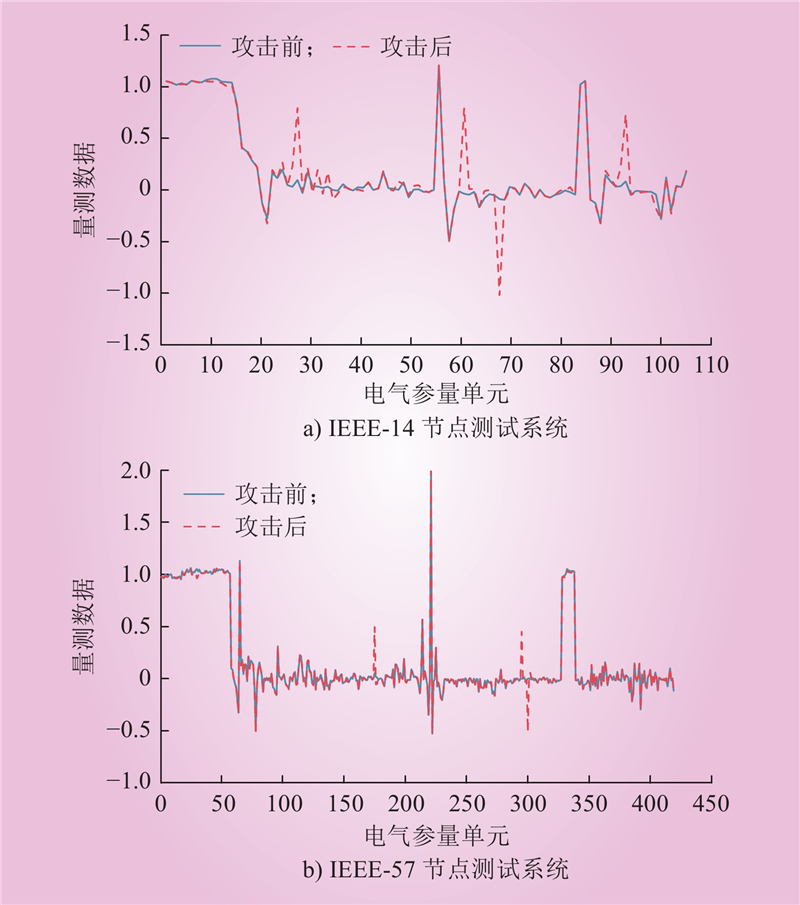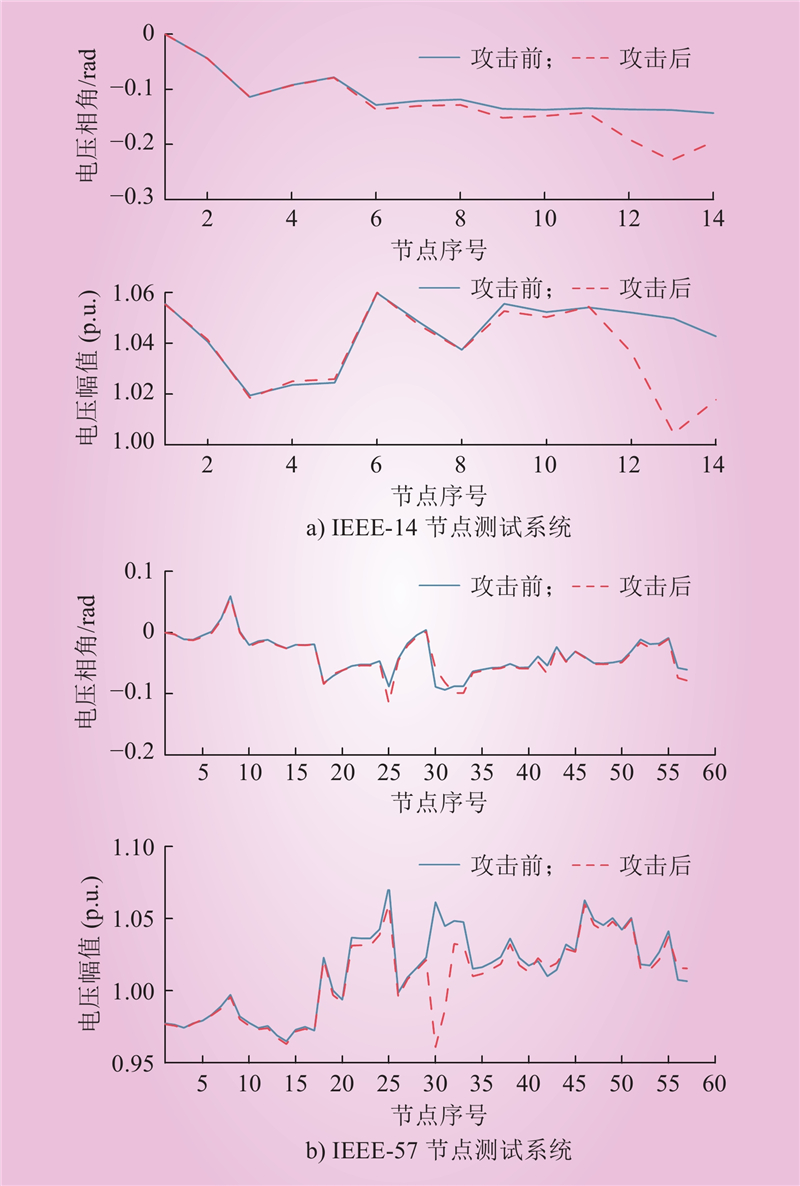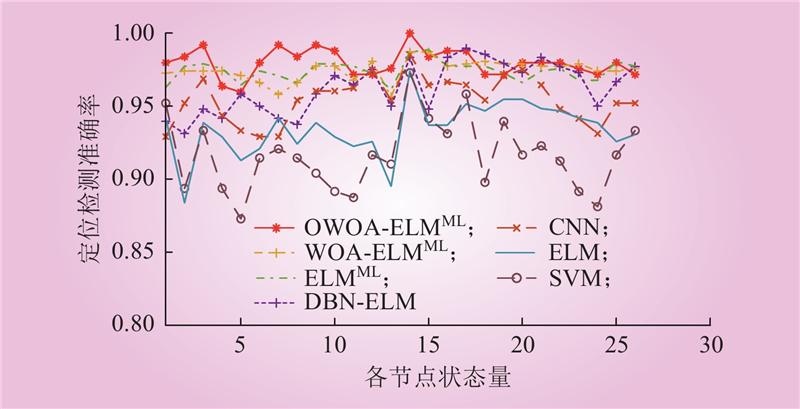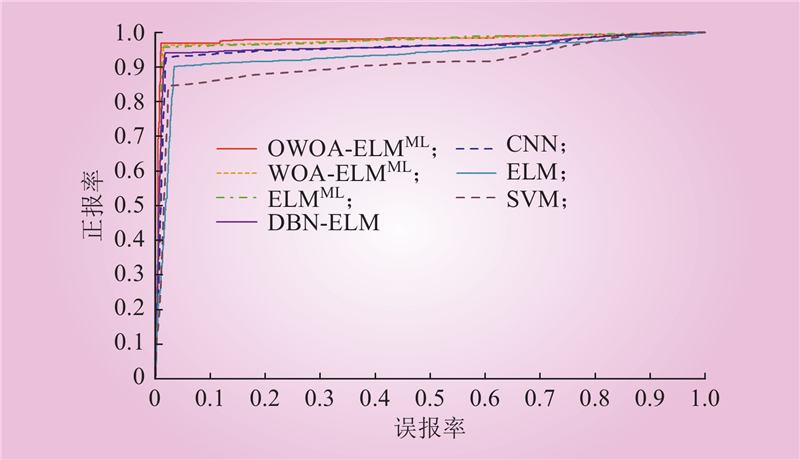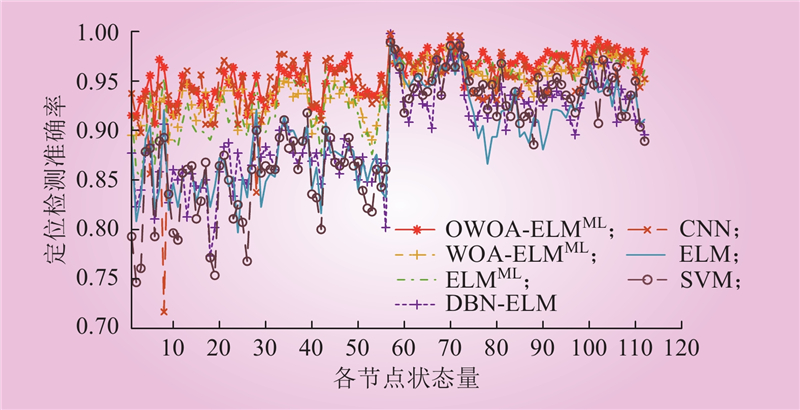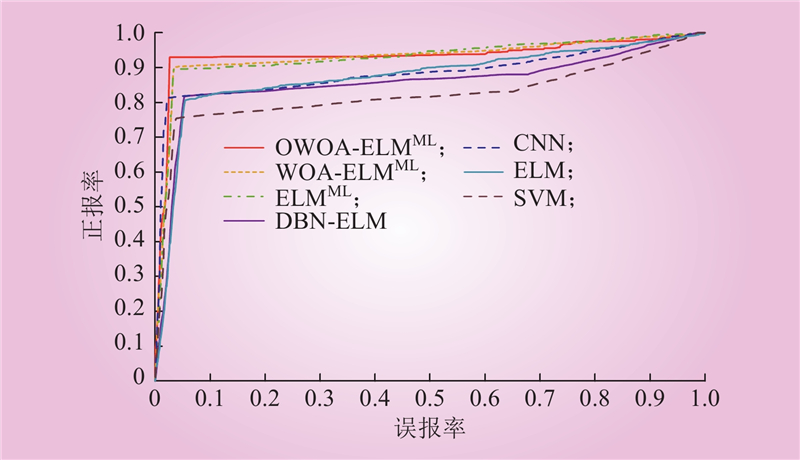| 1 |
何瑞文, 龙隆, 张宝仁, 等. 电力信息物理系统中信息系统物理化的建模及分析方法[J]. 中国电机工程学报, 2024, 44 (1): 72- 85.
|
|
HE Ruiwen, LONG Long, ZHANG Baoren, et al. Cyber system physicalizing modeling and analysis method in cyber-physical power systems[J]. Proceedings of the CSEE, 2024, 44 (1): 72- 85.
|
| 2 |
李晓, 许剑冰, 李满礼, 等. 考虑信息失效影响的配电网信息物理系统安全性评估方法[J]. 中国电力, 2022, 55 (2): 73- 81.
|
|
LI Xiao, XU Jianbing, LI Manli, et al. A security evaluation method for cyber physical distribution system considering influence of information failure[J]. Electric Power, 2022, 55 (2): 73- 81.
|
| 3 |
姚鹏超, 颜秉晶, 郝唯杰, 等. 电力信息物理系统入侵容忍能力评估方法[J]. 中国电力, 2022, 55 (4): 13- 22.
|
|
YAO Pengchao, YAN Bingjing, HAO Weijie, et al. An intrusion tolerance assessment method for cyber-physical power system[J]. Electric Power, 2022, 55 (4): 13- 22.
|
| 4 |
李欣, 易柳含, 刘晨凯, 等. 基于数据驱动的电力系统虚假数据注入攻击检测[J]. 智慧电力, 2023, 51 (2): 30- 37.
|
|
LI Xin, YI Liuhan, LIU Chenkai, et al. False data injection attacks detection in power system based on data-driven algorithm[J]. Smart Power, 2023, 51 (2): 30- 37.
|
| 5 |
YANG Jun, ZHANG Wenan, GUO Fanghong. Distributed kalman-like filtering and bad data detection in the large-scale power system[J]. IEEE Transactions on Industrial Informatics, 2022, 18 (8): 5096- 5104.
DOI
|
| 6 |
ZHOU T L, XIAHOU K S, ZHANG L L, et al. Real-time detection of cyber-physical false data injection attacks on power systems[J]. IEEE Transactions on Industrial Informatics, 2021, 17 (10): 6810- 6819.
DOI
|
| 7 |
MUSLEH A S, CHEN G, DONG Z Y. A survey on the detection algorithms for false data injection attacks in smart grids[J]. IEEE Transactions on Smart Grid, 2020, 11 (3): 2218- 2234.
DOI
|
| 8 |
KHALAF M, YOUSSEF A, EL-SAADANY E. Joint detection and mitigation of false data injection attacks in AGC systems[J]. IEEE Transactions on Smart Grid, 2019, 10 (5): 4985- 4995.
DOI
|
| 9 |
YAN J J, YANG G H, WANG Y. Dynamic reduced-order observer-based detection of false data injection attacks with application to smart grid systems[J]. IEEE Transactions on Industrial Informatics, 2022, 18 (10): 6712- 6722.
DOI
|
| 10 |
ZHANG Y, WANG J H, CHEN B. Detecting false data injection attacks in smart grids: a semi-supervised deep learning approach[J]. IEEE Transactions on Smart Grid, 2021, 12 (1): 623- 634.
DOI
|
| 11 |
OZAY M, ESNAOLA I, YARMAN VURAL F T, et al. Machine learning methods for attack detection in the smart grid[J]. IEEE Trans Neural Netw Learn Syst, 2016, 27 (8): 1773- 1786.
DOI
|
| 12 |
CAMANA A M R, AHMED S, GARCIA C E, et al. Extremely randomized trees-based scheme for stealthy cyber-attack detection in smart grid networks[J]. IEEE Access, 2020, 8, 19921- 19933.
DOI
|
| 13 |
WANG D F, WANG X J, ZHANG Y, et al. Detection of power grid disturbances and cyber-attacks based on machine learning[J]. Journal of Information Security and Applications, 2019, 46, 42- 52.
DOI
|
| 14 |
KURT M N, OGUNDIJO O, LI C, et al. Online cyber-attack detection in smart grid: a reinforcement learning approach[J]. IEEE Transactions on Smart Grid, 2019, 10 (5): 5174- 5185.
DOI
|
| 15 |
HE Y B, MENDIS G J, WEI J. Real-time detection of false data injection attacks in smart grid: a deep learning-based intelligent mechanism[J]. IEEE Transactions on Smart Grid, 2017, 8 (5): 2505- 2516.
DOI
|
| 16 |
郑瑶, 张颉, 姚文轩, 等. 基于空间特征的电网同步量测虚假数据注入攻击检测[J]. 电力系统自动化, 2023, 47 (10): 128- 134.
|
|
ZHENG Yao, ZHANG Xie, YAO Wenxuan, et al. Spatial feature based detection of false data injection attack on synchronous grid measurements[J]. Automation of Electric Power Systems, 2023, 47 (10): 128- 134.
|
| 17 |
WU Ting, XUE Wenli, WANG Huaizhi, et al. Extreme learning machine-based state reconstruction for automatic attack filtering in cyber physical power system[J]. IEEE Transactions on Industrial Informatics, 2021, 17 (3): 1892- 1904.
DOI
|
| 18 |
KASUN L, ZHOU H, HUNG G B, VONG C M. Representational learning with ELMs for big data. IEEE Intelligent Systems, 2013, 28(6): 31−34.
|
| 19 |
文云峰, 赵荣臻, 肖友强, 等. 基于多层极限学习机的电力系统频率安全评估方法[J]. 电力系统自动化, 2019, 43 (1): 133- 140.
|
|
WEN Yunfeng, ZHAO Rongzhen, XIAO Youqiang, et al. Frequency safety assessment of power system based on multi-layer extreme learning machine[J]. Automation of Electric Power Systems, 2019, 43 (1): 133- 140.
|
| 20 |
ZHAO X L, JIA M P, BIN J C, et al. Multiple-order graphical deep extreme learning machine for unsupervised fault diagnosis of rolling bearing[J]. IEEE Transactions on Instrumentation Measurement, 2021, 70, 3041087.
|
| 21 |
MIRJALILI S, LEWIS A. The whale optimization algorithm[J]. Advances in Engineering Software, 2016, 95, 51- 67.
DOI
|
| 22 |
杨玉泽, 刘文霞, 李承泽, 等. 面向电力SCADA系统的FDIA检测方法综述[J]. 中国电机工程学报, 2023, 43 (22): 8602- 8622.
|
|
YANG Yuze, LIU Wenxia, LI Chengze, et al. Review of FDIA detection methods for electric power SCADA system[J]. Proceedings of the CSEE, 2023, 43 (22): 8602- 8622.
|
| 23 |
PAL S, SIKDAR B, CHOW J H. Classification and detection of PMU data manipulation attacks using transmission line parameters[J]. IEEE Transactions on Smart Grid, 2018, 9 (5): 5057- 5066.
DOI
|
| 24 |
DENG R L, XIAO G X, LU R X, et al. False data injection on state estimation in power systems—attacks, impacts, and defense: a survey[J]. IEEE Transactions on Industrial Informatics, 2017, 13 (2): 411- 423.
DOI
|
| 25 |
LIANG G Q, ZHAO J H, LUO F J, et al. A review of false data injection attacks against modern power systems[J]. IEEE Transactions on Smart Grid, 2017, 8 (4): 1630- 1638.
DOI
|
| 26 |
YANG Q Y, YANG J, YU W, et al. On false data-injection attacks against power system state estimation: modeling and countermeasures[J]. IEEE Transactions on Parallel and Distributed Systems, 2014, 25 (3): 717- 729.
DOI
|
| 27 |
WANG S Y, BI S Z, ZHANG Y J A. Locational detection of the false data injection attack in a smart grid: a multilabel classification approach[J]. IEEE Internet of Things Journal, 2020, 7 (9): 8218- 8227.
DOI
|
| 28 |
HUANG G B, ZHU Q Y, SIEW C K. Extreme learning machine: theory and applications[J]. Neurocomputing, 2006, 70 (1/2/3): 489- 501.
|
| 29 |
ASHRAFUZZAMAN M, DAS S, CHAKHCHOUKH Y, et al. Detecting stealthy false data injection attacks in the smart grid using ensemble-based machine learning[J]. Computers & Security, 2020, 97, 101994.
|
| 30 |
ABO-ELYOUSR F K, ABDELAZIZ A Y. A novel modified robust load frequency control for mass-less inertia photovoltaics penetrations via hybrid PSO-WOA approach[J]. Electric Power Components and Systems, 2019, 47 (19/20): 1744- 1758.
|
| 31 |
张国治, 陈康, 方荣行, 等. 基于DGA与鲸鱼算法优化LogitBoost-决策树的变压器故障诊断方法[J]. 电力系统保护与控制, 2023, 51 (7): 63- 72.
|
|
ZHANG Guozhi, CHEN Kang, FANG Rongxing, et al. Transformer fault diagnosis based on DGA and a whale algorithm optimizing a LogitBoost-decision tree[J]. Power System Protection and Control, 2023, 51 (7): 63- 72.
|
| 32 |
ALZAIDI K M S, BAYAT O, UÇAN O N. Multiple DGs for reducing total power losses in radial distribution systems using hybrid WOA-SSA algorithm[J]. International Journal of Photoenergy, 2019, 2019, 2426538.
|
| 33 |
TIZHOOSH H R. Opposition-based learning: a new scheme for machine intelligence[C]//Proceedings of the International Conference on Computational Intelligence for Modelling, Control and Automation and International Conference on Intelligent Agents, Web Technologies and Internet Commerce (CIMCA-IAWTIC'06). ACM, 2005: 95–701.
|
| 34 |
郝少飞, 邹文进, 葛浩然, 等. 基于改进鲸鱼优化算法的微电网优化运行[J]. 广东电力, 2022, 35 (1): 51- 59.
|
|
HAO Shaofei, ZOU Wenjin, GE Haoran, et al. Optimizing operation of microgrid based on improved whale optimization algorithm[J]. Guangdong Electric Power, 2022, 35 (1): 51- 59.
|
| 35 |
黄欣, 赵敏彤, 郇嘉嘉, 等. 基于BWO-DBSCAN和CSA-OCRKELM的变电站数据流异常检测方法[J]. 广东电力, 2023, 36 (5): 39- 48.
|
|
HUANG Xin, ZHAO Mintong, HUAN Jiajia, et al. Research on anomaly detection method of substation data flow based on BWO-DBSCAN and CSA-OCRKELM[J]. Guangdong Electric Power, 2023, 36 (5): 39- 48.
|
| 36 |
李元诚, 曾婧. 基于改进卷积神经网络的电网假数据注入攻击检测方法[J]. 电力系统自动化, 2019, 43 (20): 97- 104.
|
|
LI Yuancheng, ZENG Jing. Detection method of false data injection attack on power grid based on improved convolutional neural network[J]. Automation of Electric Power Systems, 2019, 43 (20): 97- 104.
|
| 37 |
席磊, 何苗, 周博奇, 等. 基于改进多隐层极限学习机的电网虚假数据注入攻击检测[J]. 自动化学报, 2023, 49 (4): 881- 890.
|
|
XI Lei, HE Miao, ZHOU Boqi, et al. Research on false data injection attack detection in power system based on improved multi layer extreme learning machine[J]. Acta Automatica Sinica, 2023, 49 (4): 881- 890.
|
| 38 |
胡聪, 洪德华, 张翠翠, 等. 一种基于特征映射与深度学习的虚假数据注入检测方法[J]. 现代电力, 2023, 40 (1): 125- 132.
|
|
HU Cong, HONG Dehua, ZHANG Cuicui, et al. A method to detect false data injection based on feature mapping and deep learning[J]. Modern Electric Power, 2023, 40 (1): 125- 132.
|
| 39 |
XUE D B, JING X R, LIU H Q. Detection of false data injection attacks in smart grid utilizing ELM-based OCON framework[J]. IEEE Access, 2019, 7, 31762- 31773.
DOI
|





